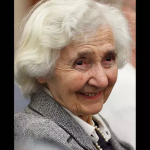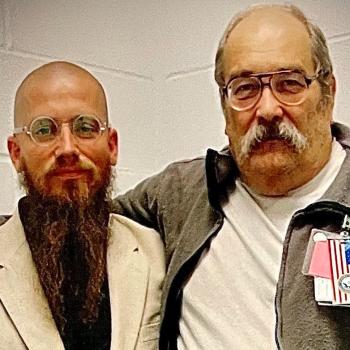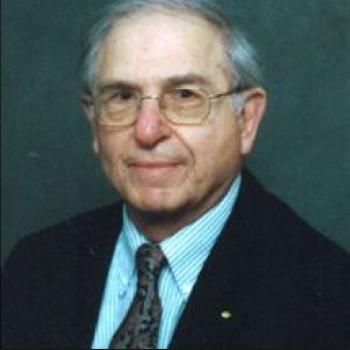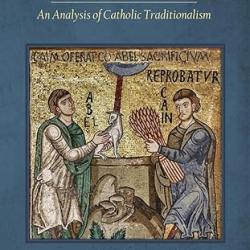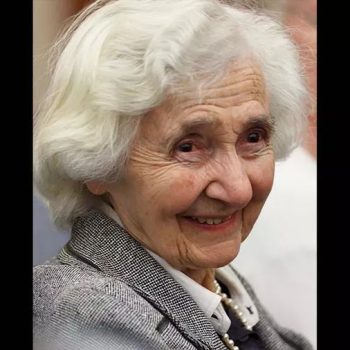The Silver Jubilee of the Cardinal O’Connor Conference on Life: A Vision for the Next 25 Years
Introduction
The 25th annual Cardinal O’Connor Conference on Life (OCC), convened this past week, Jan. 20th, at Georgetown University’s Healy Hall, stood as a testament to the preeminent commitment of American Catholics to the sanctity of human life. The OCC is the largest collegiate anti-abortion student-run conference in the country. This event, marked by a blend of profound reflection and forward thinking, brought together some of the strongest voices in the pro-life movement. This Silver Jubilee was not merely a commemoration, but a clarion call to discern and navigate the next 25 years of advocacy for life.
A Cardinal’s Vision
The keynote speech, delivered by Cardinal Seán Patrick O’Malley, was not only a highlight but a guiding light for the conference. Cardinal O’Malley, a figure of immense stature in the Catholic Church, president of the Pontifical Commission for the Protection of Minors, and a member of the Pope’s Council of Cardinal Advisers (or C9 for short, due to its original number of members), addressed the assembly with the wisdom and gravity befitting the event’s Silver Jubilee in weaving together his extensive experience and deep insights, and calling for a renewed commitment to life’s dignity from conception to natural death.
His emphasis on new challenges, particularly the emerging threat of physician-assisted suicide, and the need for more action on the state and local level, signaled a pivotal shift in the pro-life movement’s focus from the national phase from which the movement had sprung in an effort to overturn Roe v. Wade.
It needs reemphasizing that this incredible success, the overturning of Roe, the culmination of over fifty years of effort on the part of the pro-life movement, miraculously occurred only a year ago.
The Cardinal’s poignant remark, “When the value of life is compromised or diminished, all life is at risk,” echoed a profound truth about the sanctity of all life, an issue effecting every human being, urging attendees to broaden their horizons beyond traditional advocacy. His words resonated deeply, reflecting a vision that transcends mere policy debates and touches the core of our collective human conscience.
Cardinal O’Malley’s address also delved into wider societal maladies such as poverty and racism. These ills, he highlighted, not only push women towards abortion but also impinge upon the sanctity of life at different junctures. He advocated for an approach to pro-life advocacy that is imbued with empathy and a thorough understanding of these underlying socio-economic issues. This comprehensive perspective, encompassing a battle against racism and injustice, demonstrates an acute awareness of how intricately life issues are interwoven within our societal fabric. Pope Francis has been a strong advocate of an approach which addresses the interconnectedness of these, seeing it not merely as a legal or moral issue, but one that Catholic Social Teaching has much to say about.
The Breakout Sessions
The conference’s breakout sessions were a vibrant testament to a new energy behind the pro-life movement, following the Supreme Court’s momentous decision in 2022. Among a number of speakers, Dr. Robert Fastiggi, Chair of Dogmatic Theology and Christology at Sacred Heart Major Seminary offered a comprehensive look at the Church’s teachings on human dignity as it applies to changes in Her stance on the Death Penalty, thoroughly addressing the nuances of historical development and the practical implications of this development in understanding of human dignity for our time. Meanwhile in another chapel, Fr. Gregory Pine talked about the important role prudence plays in pro-life advocacy.
These sessions provided a rich soil for intellectual and spiritual growth, challenging participants to deepen their understanding of life’s sanctity beyond its biological dimension—including also its spiritual and personalist dimensions.
A Mosaic of Perspectives: The Panel Discussion
One of the final events of the Conference was a dynamic, five-person panel discussion, moderated by Kim Daniels, JD, Director of the Initiative on Catholic Social Thought and Public Life at Georgetown, and a 2016 appointment of Pope Francis to the Vatican Dicastery for Communication. Her expertise brought a unique blend of academic insight and practical wisdom to the discussions. Her experience in Catholic social thought and public life provided a framework for understanding the interplay between Church teachings and the societal challenges addressed by the speakers.
Kristen Day, Executive Director of Democrats for Life of America, with her advocacy experience, both on Capitol Hill, and at the state and local level, reminded us of the crucial need for voices across the political spectrum in the pro-life cause. She highlighted the need for bipartisan support for such things as paid family leave and pregnancy equity, including ensuring fair and equal treatment for women, particularly in terms of access to healthcare, workplace accommodations, and support systems.
She also noted the discrepancy between the staggering cost for birth in a hospital compared to the cost for abortion, incentivizing women to abort. One statistic that was mentioned was the almost 50% abortion rate in the Bronx, and 60% among black women. In other words, in the Bronx, as many babies are aborted as born.
Kristin also spoke on the need to foster a politic of “pro-life for the whole life.” She made the good point that democrats especially, being pro-choice, need to do better at also supporting the choice for life, focusing on reducing the perceived need for abortion, and supporting social support systems which would help women feel less constrained to get an abortion, such as increasing the child tax credit. She noted that the democrat platform in many ways, affirms some of the core tenets of Catholic Social Teaching, but could do a better job of employing these values, and even despite the highly contentious political fights over abortion, not ignoring the needs of overlooked women and children, in the heat of these battles. It is very consistent with Democrat values to work with the marginalized and vulnerable. The people these issues affect are too important to become political cannon fodder.
The discussion also touched on the effectiveness of boycotts and other forms of advocacy, with an understanding that even a single voice can significantly impact legislative decisions and sway our representatives.
Sr. Mariae Agnus Dei, from the Sisters of Life, spoke of the role John Cardinal O’Connor had both in the 1981 founding of her order, and also of the O’Connor Conference on Life, following a paradigm-changing visit to the Dakow concentration camp. Sister Agnus Dei also spoke of the preeminence of prayer, and of Four Ways to counter the culture of death: firstly, a way of Being, which involves being deeply rooted in the love of God and recognizing the inherent dignity of all humans, leading to actions that reflect these values. Secondly, a way of Seeing, which entails adopting a Trinitarian, or relational and contemplative perspective. Thirdly, a way of Christlike love, characterized by selflessness, generosity, and a willingness to make sacrifices. Finally, these approaches collectively lead to what she termed the Way of All Love, a comprehensive and powerful approach to countering the culture of death.
In all this, she insisted, following the words of Cardinal O’Connor, that we need to “give God permission” to work in and through us, but with the knowledge that we will be most effective when we realize that it is a way of being, moreso than doing, that is the solution to our very real crisis. Prayer needs to be our first work, which then animates a vision. Without talking to The Boss (God), how will we know our task?
If anyone had any doubts that this pro-life movement is not God’s work, first and foremost, before it is ours, they should reflect on the fact that overturning Roe v. Wade was a David v. Goliath moment in our nation. Like Mary, we are only called to say yes, and to let the Holy Spirit lead the way. However, we must also realize that we are not alone in our efforts among our brothers and sisters. Indeed, the pro-life movement is, in fact, the largest grassroots human rights movement in history. This is about more than overcoming particular legislation, or about putting planned parenthood out of business. This movement is about building a culture of life, where abortion isn’t just unthinkable from a moral point of view, but should never even be a consideration, because mothers—both vulnerable mothers, and those mothers chasing their dreams who fear that a baby could impede on their lives—will be reassured that we are a society that will take care of both the mother and the child, both before, and after birth. To understand the needs of mothers though, this requires both listening to God, and listening to women.
Another speaker, Emily Geiger, from the Equal Rights Institute (ERI) spoke on how we should approach education and outreach, particularly emphasizing the need for respectful dialogue and understanding. She highlighted the ERI’s courses designed to refine pro-life advocacy, focusing on eliminating ineffective arguments while promoting more persuasive ones. These courses teach how to engage with unresponsive audiences, interact with those holding opposing views, and the art of active listening. Geiger emphasized that certain aggressive tactics can be counterproductive. Instead, she suggested several strategies: asking questions for clarification rather than confrontation, finding common ground on shared concerns to humanize conversations, and maintaining respect to encourage constructive engagement. She underscored the necessity for pro-life individuals to break free from political echo chambers and genuinely interact with people of differing viewpoints, cautioning against the creation of misrepresentative stereotypes. This approach helps in understanding the true perspectives of pro-choice individuals. Geiger also stressed the importance of being a role model in dialogues, setting high standards that encourage others to engage similarly. Ultimately, she advised giving others time and grace, fostering an environment of mutual respect and understanding.
Margaret “Peggy” Hartshorn, PhD, Board Chair, and former President of Heartbeat International, the largest pregnancy help organization in the world, and recipient of the Cardinal O’Connor Award from Legatus International, spoke to the global impact and necessity of pregnancy help organizations, underscoring the role they play in transforming communities and offering radical solidarity with pregnant women. She noted how despite these pregnancy centers being ground-zero of the pro-life movement, many counties unfortunately still have no, or only one, center.
The political aspect of the pro-life movement is important, but it is also an aspect that it is possible to overemphasize, as a way to exempt oneself from actively getting involved. One of the basic principles of Catholic social teaching, besides solidarity, is subsidiarity, which means, practically speaking, bringing the issue into its most local and concrete expressions, and building from there. In other words, seeking to work with the press, businesses, and medical communities in your area, or even better, find ways to encourage the founding of a pregnancy center. In all this, relationship building, and relationship-based communication is a crucial dimension. Remember 1 Corinthians 13, “If I speak in the tongues of men or of angels, but do not have love, I am only a resounding gong or a clanging cymbal.” Those in crisis pregnancies DO NOT want to hear resounding gongs and clanging cymbals.
Further, what is needed in this movement is attention to the changing landscape, addressing especially such new challenges as the over-the-counter abortion pills, mifepristone and misoprostol, which now account for 70% of abortions, and are a cause of severe blood loss and hemorrhaging for women. We can also do more in the pro-life movement to focus on such things as mobile and virtual pregnancy centers, virtual pregnancy tests, and abortion pill reversal. Simply put, we need to speak to service, and to ask ourselves, what does this service to women and society look like today?
Both Peggy and Emily highlighted the importance of community engagement and the power of compassionate, respectful conversation in promoting a culture of life. Peggy in particular, underlined how when certain elements and needs in the movement shift over time, the one constant is the need for expanded health services provided by pregnancy centers.
Key Takeaways: A New Horizon for Life Advocacy
Overall, the conference was a reminder that the pro-life movement stands at a critical juncture. In the post-Roe era, the movement faces both new challenges and opportunities. We are no longer lobbying primarily for change at the level of national politics and the Supreme Court, although this type of work is important, and a nationwide ban on abortion (and euthanasia, and the likes) would be welcome.
The discussions underscored the need for a renewed commitment to understanding and defending the foundational right to life also at the local level, in our neighborhoods, in our towns, counties, and states. They also highlighted the importance of hope, reasoned dialogue (yes, even, and especially with our intellectual opponents), and practical action other than lobbying, in advancing the cause of life.
What must be acknowledged, is that the conversation surrounding the foundations of our society—the inherent equality and rights to life, liberty, and the pursuit of happiness, along with fundamental issues surrounding marriage, family, and gender—has dramatically shifted from what it was 25 to 50 years ago. Despite these changes, the constant need for pregnancy help and support centers remains undiminished. Amidst these transitions, fostering hope remains a vital aspect, underpinning the movement’s efforts.
Addressing fundamental disagreements, especially where there is a lack of common ground, also poses a significant challenge. For instance, discourse with our pro-choice counterparts remains deadlocked around such questions over biological humanity, as distinguished from philosophical questions surrounding personhood. It is critical here, that we affirm the truth that it is our human nature that needs to ground the right to life, since there is no other fundamental way to ground equality.
Moreover, the dialogue touched on sensitive issues such as rape, incest, and the common accusation that pro-lifers lack concern for the child post-birth; the reluctance of mothers to raise children in poverty and suffering; and highlighting the often unspoken pain of women post-abortion, emphasizing the need for empathy, understanding, and support. The conversation recognized that abortion is not a solution, but rather a deepening of trauma.
In the wake of Roe v. Wade being overturned, states have shown varying degrees of enthusiasm and engagement, leading to a shift in the pro-life movement’s focus.
The parting words of the conversation were a powerful call to faith and action. The analogy of being long-distance runners in a relay race encapsulates the enduring and collective nature of this advocacy.
The prayer following the panel discussion was a humble plea for guidance to use our freedom to pursue justice, embodying the spirit of resilience and hope that characterizes the pro-life movement.
The Mass for Life
As is tradition, the Conference ended with the Mass for Life, this year celebrated by Baltimore Archbishop William E. Lori, who as a natural historian, in his homily, expertly summarized and contextualized the life and work of Cardinal O’Connor for attendees, many of whom were too young to remember him. Cardinal O’Connor was not only a distinguished prelate of the Catholic Church but also a man whose life was deeply influenced by his military career as a chaplain, and eventually serving as a Rear Admiral. This profoundly shaped his approach to leadership and pastoral care.
O’Connor, was not only a principled prelate with extensive military and pastoral training however, he had also a master’s degree in advanced ethics and a doctorate in political science from Georgetown University, further equipping him to engage with complex moral, social, and public policy issues for which he is known.
Eventually, he became Archbishop of New York, a position he held from 1984 until his death in 2000, and a cardinal from 1985. His dedication to his mission was evident in his unwavering commitment to the Catholic Church’s teachings on the sanctity of life, human dignity, and social justice. This commitment was reflected in his advocacy for the poor, his support for organized labor, and his efforts to foster Catholic-Jewish relations.
Archbishop Lori ended his remarks enunciating the famous words of Pope St. Paul VI, “If you want peace, work for justice.”
Conclusion: Confronting Challenges and Embracing Hope
As the conference concluded, it was made clear that the journey ahead for the pro-life movement is both full of significant challenges but also full of hope. The collective wisdom and commitment displayed at the conference illuminated a path forward that is both compassionate and principled. The conference’s closing reflections underscored the evolution of the pro-life movement and especially the need for adaptation in its methods and messaging in all areas of the pro-life movement, including advocacy, education, and local action.
Cardinal O’Malley’s words resonated with a profound call to action and trust in divine providence: “Trust that God has chosen you for this time. That’s what God needs the most.” This sentiment, echoed by other speakers, highlighted the need for sustained commitment and active participation in the pro-life movement, and encouraged participants to continue their work with renewed vigor and faith, trusting that their efforts will bear fruit in the protection and celebration of life at all stages.
The Silver Jubilee of the Cardinal O’Connor Conference on Life was not just a milestone but a beacon, guiding us towards a future where the dignity of every human life is recognized and cherished.


